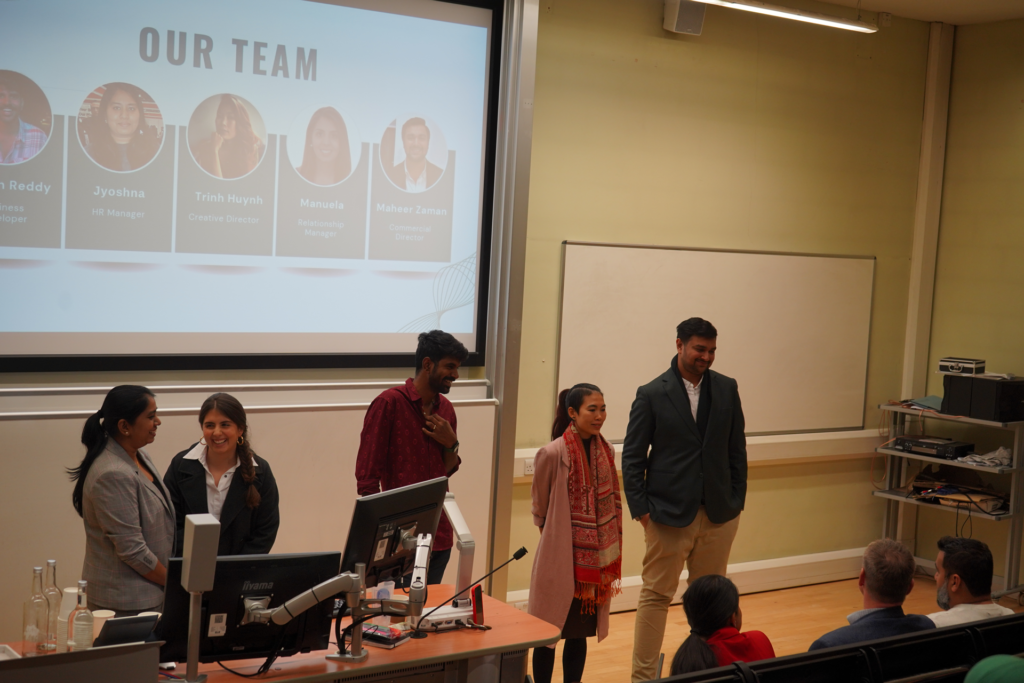An MBA can be a transformative experience, but it’s also a significant investment. In my opinion, deciding whether to pursue an MBA is a highly personal choice, shaped by your career goals, life circumstances, and, of course, financial situation. This guide will walk you through the critical considerations, from understanding your motivations to exploring alternatives, so you can make a confident, informed decision.
Reflect on Your Motivations
Career Advancement
- If you want to advance in your current field, an MBA can be a valuable credential for roles in management or executive leadership. For example, professionals in technical fields often find that an MBA is a bridge to transitioning into leadership roles by equipping them with essential business knowledge. Embarking on a Study Abroad MBA Journey can further enhance this experience.
- Example: Many engineers who want to step into management find that an MBA provides the strategic, financial, and leadership insights they need to move beyond a purely technical focus.
Career Change
- If you’re considering switching industries—such as moving from finance to healthcare or from marketing to consulting—an MBA offers a structured way to acquire cross-functional knowledge and network with professionals in your target industry.
- Example: Consulting firms, for instance, recruit MBAs from diverse backgrounds, offering structured industry training post-hire. So, an MBA can be the ideal entry point if you’re aiming to break into consulting.
Entrepreneurial Aspirations
- If starting your own business is your goal, an MBA can provide valuable resources like mentorship, funding opportunities, and exposure to the startup ecosystem.
- Example: Many programs, such as Brunel University of London’s Hive, offer entrepreneurial incubators and startup competitions, providing entrepreneurs with the resources, feedback, and potential funding needed to launch their ventures.
Skill Development
- Do you need specific skills to reach the next level in your career—such as finance, negotiation, or strategic thinking? An MBA curriculum covers broad business fundamentals, allowing you to strengthen these areas in a structured environment.
Action Step
Write down your top three reasons for pursuing an MBA.
For each reason, ask yourself, Would these goals be achievable without an MBA? Being honest about your motivations will help you stay focused on what truly matters to you throughout the program.
Whose Goals Are You Pursuing? Reflecting on True Motivations
Family Expectations
Some people are influenced by family expectations, especially if they come from a family with a strong emphasis on formal education. It’s important to ask yourself if an MBA is something you genuinely want or if it’s something expected of you. This degree is a commitment—make sure it aligns with your vision.
Social Pressure and Peer Influence
Seeing colleagues and friends pursue MBAs can create a sense of urgency to “keep up.” But remember, an MBA is a significant investment of time, money, and energy that should be pursued on your terms, not because of societal expectations.
Self-Validation
Some view an MBA as a “status symbol” or a way to enhance their resume’s prestige. While there’s nothing wrong with ambition, ensure your primary motivation is genuine personal growth, not just external validation.
Action Step
Ask yourself, If no one else knew about my MBA, would I still want to pursue it? Understanding your motivation will ensure that this choice aligns with your values, keeping you committed to the journey.
Who Benefits Most from an MBA?
Mid-Career Professional
If you’re at a career plateau and need new skills or credentials to advance, an MBA can be a valuable boost. Many mid-career professionals pursue MBAs to gain a fresh perspective and the tools to take on higher responsibilities.
Example: Someone working in middle management may find that an MBA provides the strategic management and leadership skills required to reach the C-suite.
Career Changers
An MBA is particularly beneficial for those wanting to pivot into a new industry or function. After spending a decade working in Marketing, Events, and Operations within the F&B sector and running my own fashion business, I reached a point where I was ready for more.

While I had gained invaluable skills in managing operations and leading teams, I was eager to step out of my established niche and explore fresh challenges. I wanted to break through the “glass ceiling” of my current expertise, achieve greater professional and personal growth, and position myself for a meaningful impact in a new field. For career changers like me, an MBA can be the perfect catalyst to explore new territories confidently and embrace change with purpose.
Aspiring Leaders and Managers
If you aspire to manage teams or lead projects, MBA programs offer countless group projects, case studies, and opportunities to develop essential leadership and people-management skills, such as effective communication, empathy, and strategic decision-making.
Action Step
Identify professionals in your network who pursued an MBA and observe their career paths. Can you see yourself in their roles? This exercise can provide insight into the ways an MBA might impact your career trajectory.
Is the Investment Worth It? Let’s Break Down the Costs
Financial Cost
An MBA from a top school can be a considerable financial commitment. Tuition alone varies widely: in the UK, it ranges from £20,000 to £90,000; in the US, it can range from $50,000 to well over $200,000; and in Australia, from AUD 30,000 to AUD 100,000+. When evaluating the overall cost, it’s essential to factor in additional expenses, such as living costs, travel for networking, course materials, and fees.
My personal example: My MBA in the UK was priced at £27,500 for the 2023/24 academic year. Thanks to a scholarship and support from my former employer, Broma, and additional sponsorship, I was able to cover nearly 50% of the tuition. However, I still took out a loan to fund the remainder—an investment that required both careful planning and a leap of faith.
Opportunity Cost
Beyond tuition and fees, there’s also the “opportunity cost”—the income you’re forfeiting while in school. For a full-time MBA, this can mean losing one or two years of salary, which can be particularly impactful for established professionals at higher income levels. Factoring this into your financial planning will give you a realistic view of the true investment you’re making.
Impact on Personal Life
Balancing the intense time commitments of an MBA program with personal obligations can be challenging, especially in a full-time program. If you have family or significant professional responsibilities, consider a part-time or online MBA program for greater flexibility.
For me, relocating to the UK for a full-time MBA added an emotional layer to the financial and academic challenges. Adapting to a new environment, routines, and networks tested my resilience, but ultimately contributed to my growth.
Action Step
To make an informed decision, calculate the total cost of your MBA—including tuition, lost income, relocation expenses, and additional fees. Then, project your expected post-MBA salary to determine the payback period.
Understanding this timeframe is vital in assessing whether the MBA aligns with your financial and career goals.
My Journey to Pursuing an MBA Abroad: A Path to Confidence and Curiosity
For as long as I can remember, I dreamed of pursuing higher education abroad. It wasn’t just about earning a degree but about stepping into new worlds, challenging myself, and exploring perspectives beyond what I’d known. After years of contemplation, I finally decided to follow my heart and take the leap toward an MBA—a decision that has been profoundly validating and transformative.
I realised I was seeking more than academic knowledge or career advancement. Part of me craved the self-assurance that comes from challenging my limits and succeeding in an entirely new environment. My MBA became a way to step into a more powerful version of myself and build stronger, more resilient confidence. Yet, as much as this journey has helped me gain confidence, it has also humbled me. The more I learn, the more I recognise how vast the world of knowledge truly is. Far from feeling like I’ve “arrived,” I find myself continually inspired to keep learning and growing.

Pursuing an MBA has shown me that education is as much about expanding our capabilities as it is about deepening our humility. I’m grateful for this experience, not only for the skills it has imparted but for the curiosity it has ignited. This balance—confidence paired with curiosity—is essential for anyone aiming to make a meaningful impact in their career and beyond.
Which MBA Program is Right for You?
Not all MBA programs are created equal, and the type of MBA you choose can significantly impact your experience and career trajectory. Here’s a breakdown of the most common types:
Full-Time MBA
Typically, these programs last 1-2 years and are immersive, ideal for those looking for a complete career overhaul or a break from work to focus solely on their studies.
Best for: Career switchers, young professionals, or those wanting to immerse themselves in the MBA experience fully.
Part-Time MBA
These programs allow students to continue working while studying, usually taking 3-4 years to complete. They’re great for those who want to keep their job or have family commitments.
Best for: Professionals looking to advance in their current field without a break in employment.
Executive MBA (EMBA)
Designed for experienced professionals (usually with 10+ years of experience), EMBA programs are often part-time, with classes on weekends or in modules. They’re tailored for people already in senior roles who want to expand their strategic knowledge.
Best for: Senior leaders who aim to move up in their organisations or develop strategic skills without pausing their careers.
Online MBA
These programs offer flexibility for those who need it. Their popularity and reputation have grown, making them a viable option for many.
Best for: Those with busy schedules, those in remote locations, or those who want a more affordable option.
Action Step
Consider your current career level, flexibility, and time constraints. Decide which type of MBA program aligns best with your lifestyle and career goals.
Choosing the Right University: Reputation, Alumni Network, and Specialisation
Reputation and Ranking
While rankings are not everything, they can give you an idea of the quality of education and resources available. Top-ranked schools generally have more robust networks and higher starting salaries for graduates. But remember, these rankings often reflect general criteria—your personal fit with the school is just as important.
My personal example: Growing up, I learned English by listening to BBC podcasts, which sparked in me an inexplicable fascination with the UK. This complex connection inspired me to write an article titled “My Love-Hate Relationship with the UK.” When it came time to choose a university, I was particularly attracted to Brunel University London due to its impressive ranking of 14th in graduate employability. This factor played a significant role in my decision to apply, as I was eager to enhance my career prospects while immersing myself in a culture I felt deeply connected to.
Alumni Network
A strong alumni network can be invaluable, especially in the the consulting, finance, and tech industries. Research the school’s alumni engagement and support and how active and accessible the network is for career advice and mentorship.
Specialisation and Curriculum
While rankings offer insights into resources and network strength, fit matters most. Top schools like Harvard, Stanford, and Wharton provide global recognition, while UK schools like UCL, Oxford, Cambridge, and Brunel are well-known for finance and management.
Action Step
Identify programs that align with your career goals and preferred industry. Research each school’s faculty, curriculum, and unique resources.
Which Country Should You Study In?
The country you choose to study in can affect everything from your lifestyle to your career opportunities. Therefore, I’d recommend evaluating your opinions based on culture, language, and post-MBA opportunities. Here’s a look at some of the critical factors to consider:

Job Market and Work Visa Policies
Many students pursue an MBA to work in a particular country post-graduation. Research each country’s visa policies and job market, especially for international students.
Example: The US presents a wealth of opportunities for MBA graduates; however, it also has stringent visa regulations that can complicate the process of obtaining work authorisation. On the other hand, Canada boasts more supportive immigration policies for skilled professionals, facilitating a smoother transition to work and residency following graduation. Additionally, the UK offers a two-year post-graduation visa, allowing international students to gain valuable work experience there.
Cost of Living and Tuition
Living costs can vary widely depending on the country and city. London and New York, for instance, are expensive, while cities in Asia or some European countries might be more affordable.
Example: An MBA in Singapore might be more affordable than an MBA in the U.K. or U.S., though salaries after graduation might also vary accordingly.
Cultural Fit and Language
The cultural experience is an essential part of the MBA journey. Studying in a country where you can connect with the local culture or speak the language might make the transition easier.
Example: If you’re not comfortable with a new language, an English-speaking country like the U.S., Canada, or the UK might be ideal. But if you’re eager to immerse yourself in a new language and culture, consider programs in France, Germany, or Spain.
Permitted Part-Time Employment
- In the UK, international students can work up to 20 hours per week during term time, which helps them gain experience and supplement their income while studying.
- In the United States, international students on F-1 visas can work on-campus without restrictions and off-campus through Optional Practical Training (OPT) or Curricular Practical Training (CPT) after meeting specific eligibility criteria.
- In Canada, international students can work up to 20 hours per week during the academic year and full-time during scheduled breaks, providing a great opportunity to gain work experience and integrate into the local job market.
- Australia allows international students to work up to 40 hours per fortnight during the school term and unlimited hours during scheduled breaks, which adds further flexibility.
- In Germany, international students can work up to 120 full days or 240 half days per year. This policy provides an excellent opportunity to earn extra income while studying.
Overall, the ability to work part-time while studying varies by country, each offering unique benefits and regulations that can greatly enhance the international student experience.
Action Step
Narrow your target countries based on language preferences, job market opportunities, and cultural fit. Then, research visa options and post-MBA employment statistics for each location.
Leveraging the MBA to Meet Your Long-Term Goals: A Roadmap to Success
An MBA can be a stepping stone, but it’s essential to have a clear roadmap for how you’ll leverage the degree post-graduation. Here’s how to maximise your investment:
Define Your Long-Term Career Goals
Be as specific as possible. For example, rather than saying, “I want to work in finance,” consider defining it as “I want to work in investment banking in New York or London.”
Networking
One of the most significant advantages of an MBA is the opportunity to build a strong network. Engage actively with classmates, alumni, and faculty, and leverage LinkedIn to maintain those connections.
Internships and Real-world Experience
Many MBA programs offer internships or consulting projects that provide hands-on experience. These opportunities can be essential for career switchers and anyone looking to build practical skills.
Specialise and Customise Your MBA Experience
Take advantage of electives, student clubs, and exchange programs to tailor your MBA to your interests. For instance, if you’re interested in social impact, look for programs that offer social entrepreneurship or non-profit management tracks.
Action Step
Create a post-MBA plan with goals of short-term (0-2 years) and long-term (3-5 years). Identify the specific skills, networks, and experiences you want to gain during your MBA to make those goals a reality.
Final Thoughts: Have Fun With Your MBA Journey
Making the decision to pursue an MBA is no small feat. It’s a journey that demands introspection, courage, and a leap of faith. An MBA can be more than just a degree—it’s a transformative process that expands your thinking, tests your resilience, and sharpens your vision for the future. But ultimately, it’s a choice that should align deeply with who you are and where you want to go.
As you embark on this MBA journey, embrace the challenges and opportunities that come your way. Trust that the process will stretch you, reshape your perspectives, and equip you with the skills and mindset to make a meaningful impact. Remain open to new experiences, cultivate a growth mindset, and be courageous to step out of your comfort zone. The true value of an MBA lies not just in the degree but in the transformative personal growth accompanying it. Trust the process, and allow your MBA to catalyse your evolution.
Remember to have fun with your MBA journey, too.


